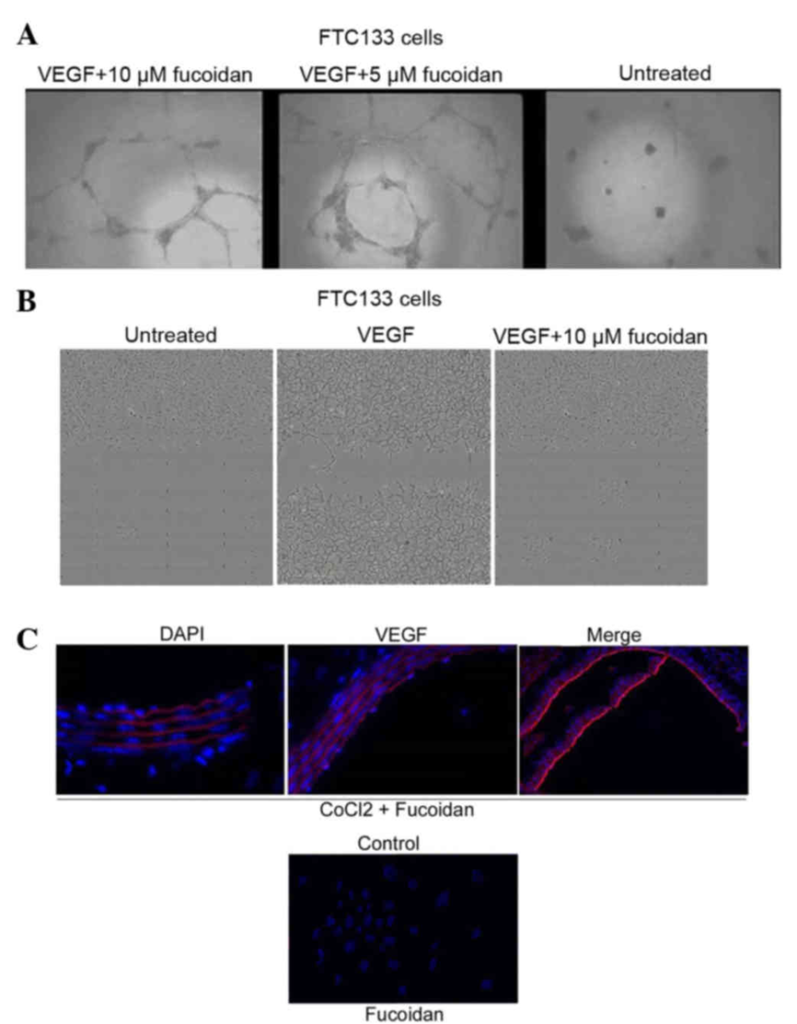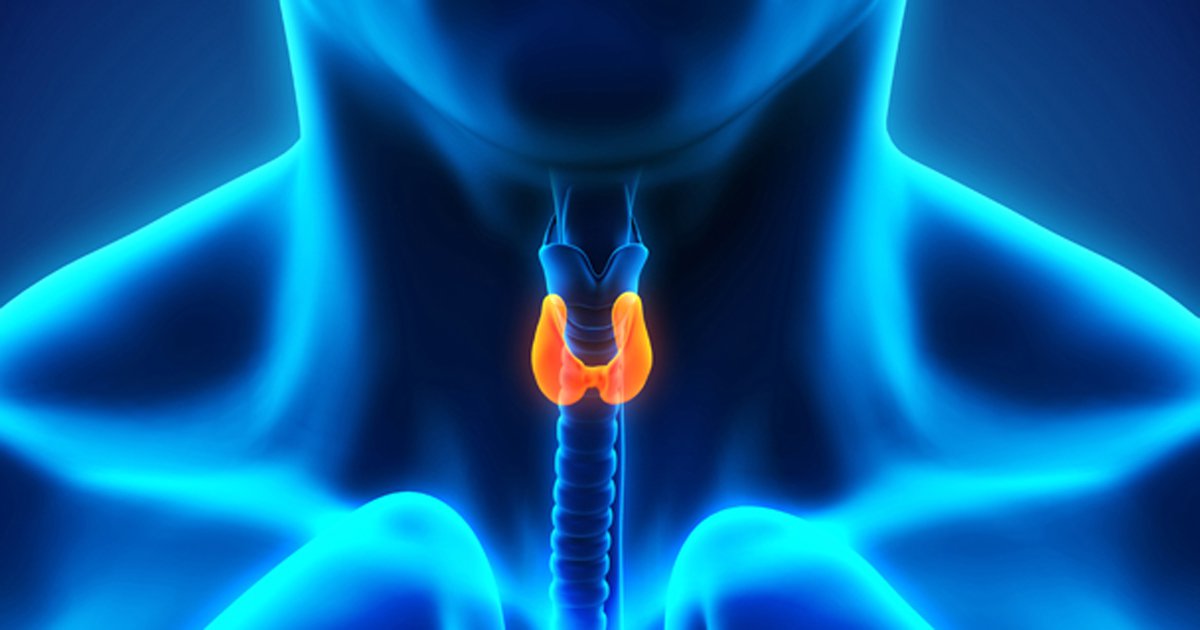Anaplastic carcinoma of the thyroid is one of the rare form of thyroid cancer and is highly malignant cancer. Anaplastic Thyroid Cancer accounts for approximately 1% of all cases. The studies reveal that papillary and follicular cancers existed for many years. It is noteworthy that they have undergone a sudden change in their nature, leading to the transformation into undifferentiated cancers. Compared to other thyroid cancers, it is more common in people over 60. Also, the various thyroid cancer types are characterized as it is more common in women. Still, the ratio of getting alloplastic cancer between men and women is 1:1.
Therefore, in this article, I would like to introduce the study of “ Antitumor activity of fucoidan in anaplastic thyroid cancer via apoptosis and anti-angiogenesis” by HONG-YAN SHEN et al. This study demonstrates the effect of Fucoidan isolated from Fucus vesiculosus on cell proliferation and apoptosis of undifferentiated thyroid cancer cells.
First, they analyzed cell viability and treatment of FTC133 and TPC1 ATC (Anaplastic thyroid cancers) cell lines with different doses of fucoidan (1–15 μM) inhibited cell proliferation 36 hours after treatment. The inhibition of cell proliferation by fucoidan was concentration-dependent. (See Figure 1) The effect of fucoidan on apoptotic cell death in FTC133 ATCs by Western blot analysis showed that FTC133 cells treated with fucoidan for 36 h showed increased expression levels of Bax, cleaved PARP, and caspase-3 compared to control cells. In contrast, Bcl -2 expression was found to be decreased. (See Figure 2A) Additionally, the DAPI staining showed DNA fragmentation and the appearance of perinuclear apoptotic bodies in FTC133 cells. (See Figure 2B) Therefore, fucoidan caused apoptosis of FTC133 cells. Fucoidan-induced apoptosis was exhibited by DNA strand breaks, which was also observed in the results of the TUNEL analysis.
Next, the cells were treated with CoCl2 (100 μM) for 18 h to induce a hypoxia-like state and then treated with various doses of Fucoidan. Under hypoxic conditions, HIF-1α expression was enhanced, whereas fucoidan treatment (10 μM) reduced hypoxia-induced HIF-1α expression. VEGF expression was also enhanced under hypoxic conditions, and this hypoxia-induced VEGF expression was decreased by fucoidan treatment. Results of the tube formation assay revealed that the formation of vessel-like structures was suppressed after fucoidan treatment. (See Figure. 3A) Incubation of wounded cells for 16 hours in a medium containing 50 ng/ml VEGF and one mM thymidine in the presence of fucoidan (10 μM) showed impaired wound healing capacity. (See Figure. 3B) Investigation of the effect of fucoidan on VEGF expression revealed a decrease in VEGF expression by fucoidan in hypoxia. (See Figure. 3C) Thus, tube formation and cell migration were inhibited by Fucoidan, suggesting that fucoidan has potent anti-angiogenic effects.
In conclusion, these results demonstrate that fucoidan inhibits cell proliferation of thyroid cancer cells, induces apoptosis, and suppresses angiogenesis. These findings also suggested that fucoidan may be a potential candidate for cancer therapy against ATC.
Anaplastic carcinoma of the thyroid is one of the rare form of thyroid cancer and is highly malignant cancer. Anaplastic Thyroid Cancer accounts for approximately 1% of all cases. The studies reveal that papillary and follicular cancers existed for many years. It is noteworthy that they have undergone a sudden change in their nature, leading to the transformation into undifferentiated cancers. Compared to other thyroid cancers, it is more common in people over 60. Also, the various thyroid cancer types are characterized as it is more common in women. Still, the ratio of getting alloplastic cancer between men and women is 1:1.
Therefore, in this article, I would like to introduce the study of “ Antitumor activity of fucoidan in anaplastic thyroid cancer via apoptosis and anti-angiogenesis” by HONG-YAN SHEN et al. This study demonstrates the effect of Fucoidan isolated from Fucus vesiculosus on cell proliferation and apoptosis of undifferentiated thyroid cancer cells.
First, they analyzed cell viability and treatment of FTC133 and TPC1 ATC (Anaplastic thyroid cancers) cell lines with different doses of fucoidan (1–15 μM) inhibited cell proliferation 36 hours after treatment. The inhibition of cell proliferation by fucoidan was concentration-dependent. (See Figure 1) The effect of fucoidan on apoptotic cell death in FTC133 ATCs by Western blot analysis showed that FTC133 cells treated with fucoidan for 36 h showed increased expression levels of Bax, cleaved PARP, and caspase-3 compared to control cells. In contrast, Bcl -2 expression was found to be decreased. (See Figure 2A) Additionally, the DAPI staining showed DNA fragmentation and the appearance of perinuclear apoptotic bodies in FTC133 cells. (See Figure 2B) Therefore, fucoidan caused apoptosis of FTC133 cells. Fucoidan-induced apoptosis was exhibited by DNA strand breaks, which was also observed in the results of the TUNEL analysis.
Next, the cells were treated with CoCl2 (100 μM) for 18 h to induce a hypoxia-like state and then treated with various doses of Fucoidan. Under hypoxic conditions, HIF-1α expression was enhanced, whereas fucoidan treatment (10 μM) reduced hypoxia-induced HIF-1α expression. VEGF expression was also enhanced under hypoxic conditions, and this hypoxia-induced VEGF expression was decreased by fucoidan treatment. Results of the tube formation assay revealed that the formation of vessel-like structures was suppressed after fucoidan treatment. (See Figure. 3A) Incubation of wounded cells for 16 hours in a medium containing 50 ng/ml VEGF and one mM thymidine in the presence of fucoidan (10 μM) showed impaired wound healing capacity. (See Figure. 3B) Investigation of the effect of fucoidan on VEGF expression revealed a decrease in VEGF expression by fucoidan in hypoxia. (See Figure. 3C) Thus, tube formation and cell migration were inhibited by Fucoidan, suggesting that fucoidan has potent anti-angiogenic effects.
In conclusion, these results demonstrate that fucoidan inhibits cell proliferation of thyroid cancer cells, induces apoptosis, and suppresses angiogenesis. These findings also suggested that fucoidan may be a potential candidate for cancer therapy against ATC.



Source: Mol Med Rep. 2017 May;15(5):2620-2624. doi: 10.3892/mmr.2017.6338.
